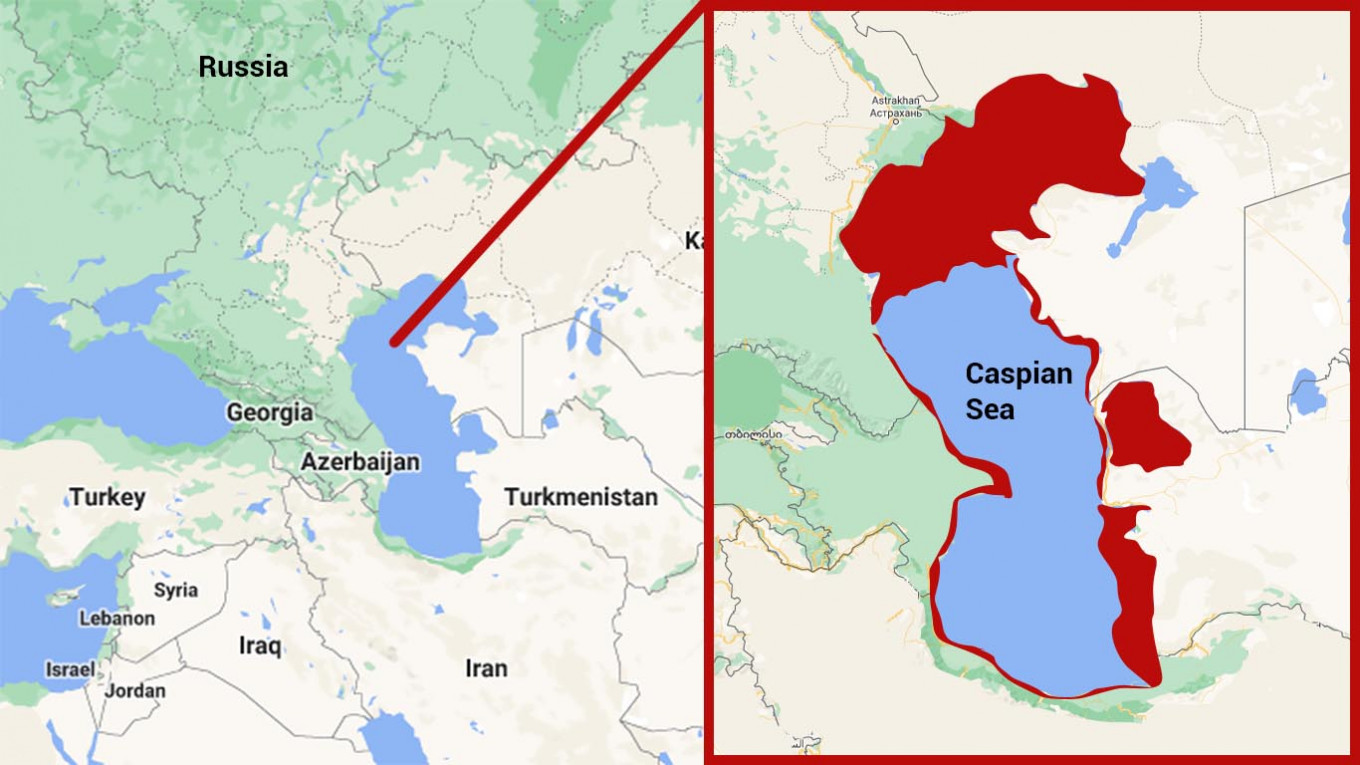In early June, an environmental emergency was declared in the Mangistau region to prevent the Caspian Sea from becoming too shallow. A committee was formed to mitigate the emergency, this committee focused on planning and surveying the situation. However, it is claimed that officials are doing little to prevent the shrinking of the sea. A Doryo correspondent met with an environmental expert and attempted to determine the causes of yet another natural disaster in the region.
The Caspian Sea is becoming shallower for a variety of reasons. To begin, according to the Baltic system, the current sea level is -28.7 metres. This figure rises year after year. According to the projection, -33 metres is projected by 2050. This means that the ocean is going to shift away from the coast by another 4-5 metres in 30 years. Previously, the sinking water level was more noticeable in Kazakhstan, but now all Caspian countries are experiencing a loss in water area.
"The Caspian Sea has historically been subject to fluctuations due to its specifics. Kazakhstan owns the lowest northern section. It is critical to consider the hazards of strategic and economic development based on environmental scenarios. There are many plans for the Caspian, including the development of coastal agglomerations and the Trans-Caspian International Transport Route, which runs from China to Europe through Kazakhstan, Azerbaijan, and Georgia," said Aizhan Skakova, an ecologist and doctor of geographical sciences.

The Volga and Ural rivers, being the main water sources of the Caspian Sea, are utilized inefficiently. The amount of water entering has decreased, rainfall has been minimal, and there is no exit to the ocean, which leads to the Caspian Sea's shallowing, as ecologist observers believe.
Authorities claimed in 2022 that the situation at sea is steady. Serikkali Brekeshev, now former Minister of Ecology, Geology, and Natural Resources, stated that talks with Russia were ongoing.
"We are also cooperating with the Russian Federation along the Zhaiyk River. Unfortunately, the yearly flow along the river has been almost half in recent years. Climate change is one among the reasons, as well the management of the river flow upstream in Russian territory. According to our information, many reservoirs have been erected there; nonetheless, we are working with the Russian side in this direction. We have signed an agreement and are following it. We intend to finish this project by 2024. This includes digging, bank protection, and scientific analysis of the riverbed, which will be followed by recommendations," Serikkali Brekeshev told reporters.
Recommendations have not been worked out yet.
Comments (0)